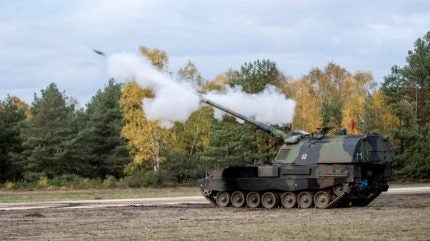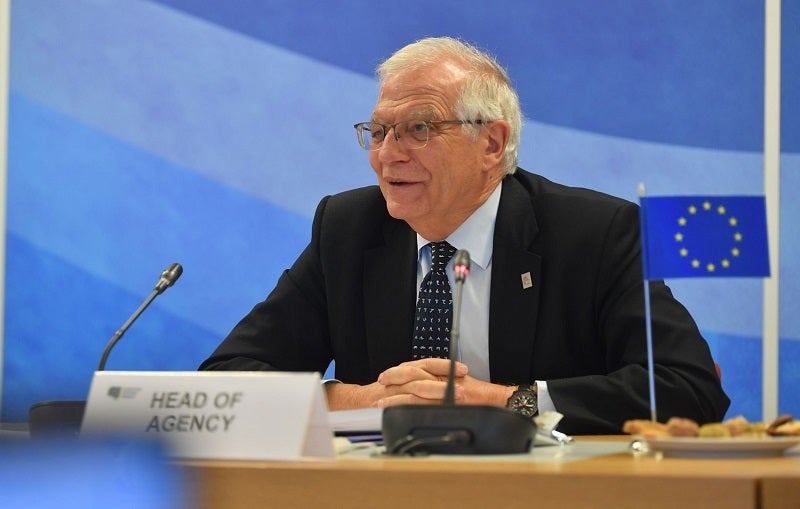
Germany will lead a group of European countries in mobilising €8.5bn ($9.08bn) toward the procurement of 155-millimetre artillery ammunition set to be delivered at the start of 2025.
Rheinmetall has been tasked to deliver the shells as one of the largest producers of arms on the continent.

Discover B2B Marketing That Performs
Combine business intelligence and editorial excellence to reach engaged professionals across 36 leading media platforms.
Annette Lehnigk-Emden, president of the Federal Office of Bundeswehr Equipment, Information Technology and In-Service Support and representatives of Rheinmetall signed the contract on 20 June 2024.
The funds will be allocated toward an existing framework for the artillery. Other nations contributing to the deal include Denmark, Estonia and the Netherlands, while part of the German funds will replenish Ukrainian stores.
“We are delighted about the largest order in our company’s recent history,” noted Armin Papperger, CEO of Rheinmetall. “This large-volume framework contract underlines Rheinmetall’s leading role as an ammunition supplier in Germany and our position as the world’s largest manufacturer of artillery ammunition.”
Capacity expansion
From 2025, Rheinmetall says it plans to produce up to 700,000 artillery shells and 10,000 tonnes of powder at its sites in Germany, Spain, South Africa, Australia and Hungary.

US Tariffs are shifting - will you react or anticipate?
Don’t let policy changes catch you off guard. Stay proactive with real-time data and expert analysis.
By GlobalDataOver the past year Rheinmetall has expanded its capacity to meet the needs of the times. The global artillery systems market was valued at $11.2bn in 2023 according to GlobalData, and the intelligence consultancy expects this to grow at a compound annual growth rate of 4% to reach a value of $16.6bn by 2033.
In August last year, the Dusseldorf-based supplier acquired the Spanish munitions manufacturer Expal in a deal worth €1.2bn, where the subsidiary will focus on the production of artillery, mortar and medium calibre ammunition.
At the start of this year, Rheinmetall made another move to expand its production lines for 155mm and 120mm ammunition at its plant in Várpalota, Hungary. Initially designed for manufacturing 30mm ammunition, the plant now plans to include the production of 155mm artillery shells and 120mm ammunition.
European artillery spike from 2025
Given that the European region has recently supplanted North America and Asia-Pacific for the top spot in the global missiles and missile defence market according to GlobalData intelligence, the region has as much chance to displace the world when it comes to munitions.
The Russia-Ukraine war has demonstrated the need to protect tactical level units on the frontline. European companies have innovated around that fact to produce new systems such as Kongsberg’s short range missile defence system NOMADS to assure aerial coverage from the threat of new types of uncrewed aerial systems. The company unveiled the new system at the Eurosatory defence exhibition in Paris this week.

If Europe can respond so astutely to the new tactics of warfare, so too can they shift at the industrial level to respond to growing needs. The European Commission and the European Defence Agency have recognised this, it is enshrined in their inaugural defence industrial strategy released in March 2024.
Alongside Rheinmetall’s timeline to deliver greater amounts from 2025 onward, the European Union will similarly transition from their short-term emergency measures adopted in the pat year to a more structural and longer-term approach to achieve defence industrial readiness from 2025 to 2027.
It is hoped EU defence market attractiveness will supplant the US monopoly that has seeped in over the last 20 years of inactivity on the continent. The European community will ensure that, by 2030, the value of intra-EU defence trade represents at least 35% of the value of the EU defence market.



